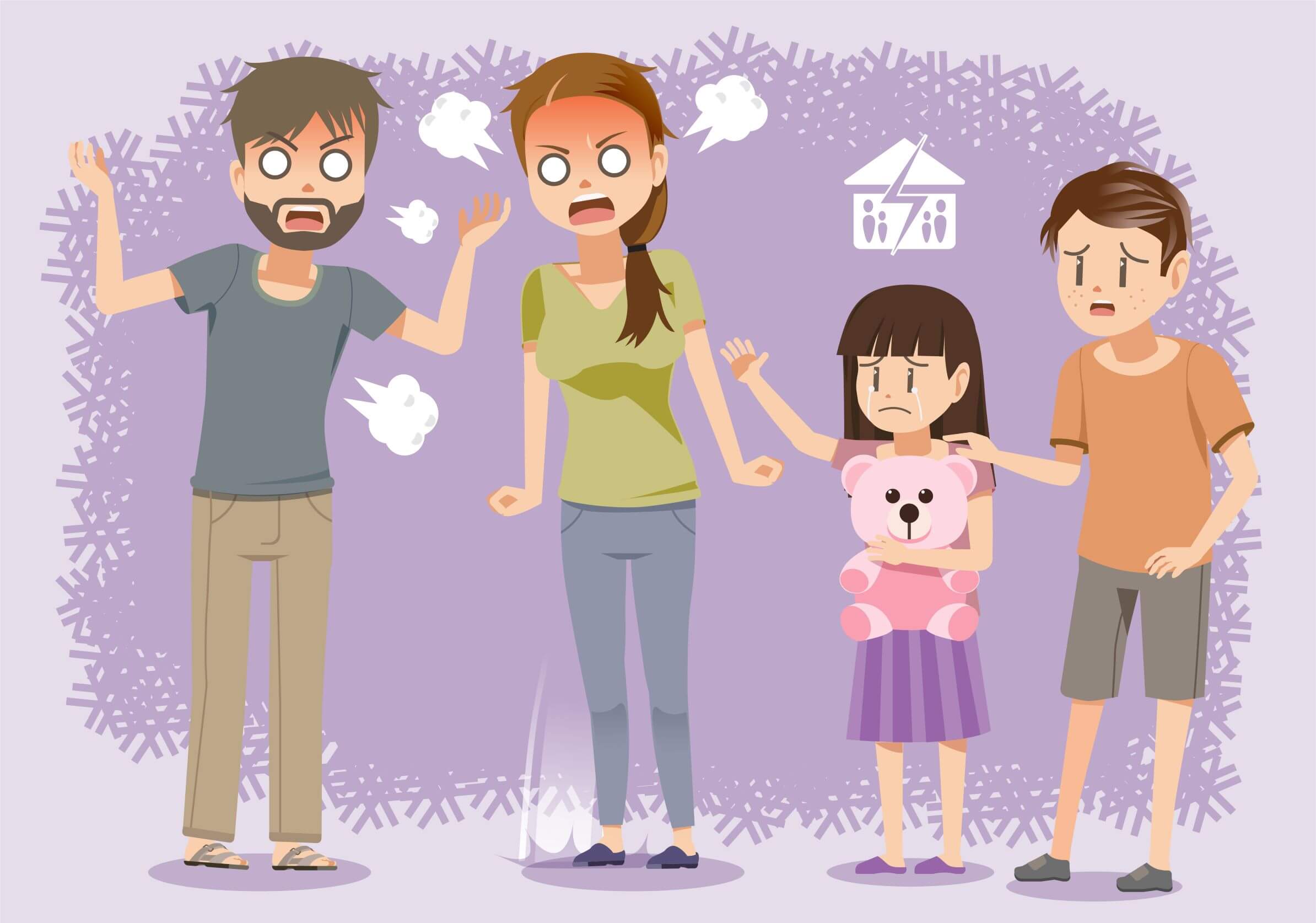What if the people who are supposed to protect and care for us hurt us and make us feel bad? How do the so-called toxic parents act? What are their characteristics?
It seems that some parents go beyond simple mistakes and exhibit harmful behaviors that affect their children’s emotional growth and education, however, this does not mean that they are not educated or abandoned, but sometimes the way to connect and act as parents is not the most appropriate.
- It is clear that the parents were not born with an educational guide under their arm.
- We came across all the first screams of a baby and we just don’t know what to do in the first few moments.
- I’m going to be a good father? These are normal doubts.
- The secret is attachment.
- Affection.
- Understanding and patience.
However, not all parents follow this parenting model. Toxic parents, on the other hand, have a number of practices that are not useful for optimal child growth. Let’s see what these behaviors are.
Some parents demand the perfection of their children. They are very critical and seek only excellence in all areas, it is their demand that children then feel humiliated, anxious and disappointed.
This way of educating based on reaching the summit, the best position, makes them very tense and distressed; In addition, the emotional damage they suffer is even deeper if their parents constantly remember their mistakes; extreme pressure prevents them from enjoying the achievements of their lives. .
These parents usually plan the career of all their descendants, it is their way of controlling them. In this way, they are forced to live the life they have built and do not allow their children to make their own decisions or make their own destiny.
They are excessive and compulsively protective parents. Those who don’t let their child go to a classmate’s birthday party or go to the movies with their friends so something doesn’t happen or lose him.
They are people who are afraid of loneliness, so they prevent their children from having a minimum of independence. This is not to say that it is best to let them act as they please, but excessive control is as damaging as extreme permissiveness.
It is necessary for children to gain some autonomy depending on their age, it is good to let them do activities away from home, however absorbing parents feel guilty simply because they want to be with other people, of course, this situation is much worse in adolescence. Especially when friends and boyfriends start showing up.
As difficult as it may seem, there are parents who are competing with their children, for example, it is common to find conflicts between mother and daughter out of sheer physical rivalry or parents who ridicule their children on the sports field to stand out.
They are usually parents who have seen some kind of frustrated dream as a child or who have had parents who have done the same to them, in this way, vent in the little ones the frustration they have accumulated during all this time. blame them for their own misfortunes, a painful way of dealing with anger.
Another type of toxic parent is one who adopts a manipulative attitude, consciously or unconsciously, for example: Will no one care for you like me?Yes? Don’t go out tonight because you know your mother’s very tired and nervous. You don’t want me to go back to the hospital, do you?
As experts in detecting vulnerabilities and weaknesses, they believe they have the power and the right to get what they want, all at the expense of their own children, who take advantage of childish innocence to do and undo as they please.
On other occasions we have put on the table the importance of attachment during the first years of a child’s life, the bond that the baby creates with his mother, father and other important figures of his environment decisively marks his subsequent development.
Therefore, if parents deprive him of this condition, show no affection or simply do not create an emotional bond with him, the repercussions can be very serious, the family model must be based on love and trust, if this is missing, the social relationships that the child will maintain in the future will be very fruitless and frustrating.
It should also not be forgotten that imitation is the basis of the child’s learning, so all habits, customs and other behaviors are learned from adults without any difficulty. Pay attention to what you show your children: vocabulary, behaviors, comments?everything and once done is difficult to repair. Parents are role models for them and, unfortunately, toxic parents too.
From this idea arises the opportunity to teach them healthy lifestyle habits, eat well, do sports frequently, not consume alcohol or toxic substances, sleep as recommended?If you don’t teach them good habits from the cradle, it will be difficult to start when you are already immersed in other kinds of routines. There is no doubt that all families have their own situation, but harmful behavior towards their children is not justified. Toxic parents don’t seem to know they’re educating their children incorrectly. Not only that, they cause serious damage that can be chronic.

